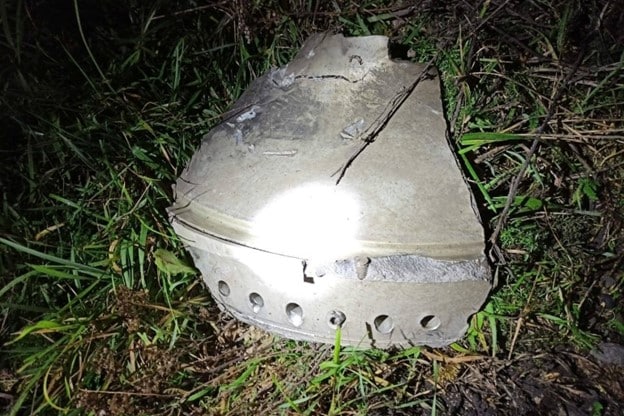The war in Ukraine is becoming unpredictable as it expands collaterally into NATO regions, and is already risking touching off a much wider conflict — and that should frighten any lawmakers in Congress looking to restore the Constitution’s Article I warmaking powers in 2023, especially in the U.S. House of Representatives, which will be changing hands in January as Republicans have reclaimed a narrow majority in the 2022 U.S. Congressional midterm elections.
The incident — a stray Ukrainian missile aimed at a Russian missile barrage landed in Poland, killing two civilians — was followed by vague news reports and immediate declarations including by Ukraine that Russia was attacking NATO directly, with many calling for Article 5 of the NATO Treaty to be immediately invoked and another world war begun.
Consider the somewhat vague set of facts. A single missile strike. Only two fatalities. Not a military target. An unknown source but reports say Russia did it. And that was it. Article 5.
And news agencies in the West appeared to buy it, hook, line and sinker. But for photographs that showed the missile was actually of Ukrainian origin, and where might the world be right now?
Likely arguing not merely for another $37 billion for Ukraine—which should be rubberstamped by an uncurious outgoing House majority led by Speaker Nancy Pelosi (D-Calif.)—but for even more escalation along the world’s most dangerous front.
For decades, nuclear arms abolitionists and hawks alike have warned that if a nuclear war does come, perhaps the most likely cause would not be any preemptive strikes per se, but an accidental war that began with an incident such as the Ukrainian missile strike.
Former U.S. Defense Secretary William Perry, who served under Bill Clinton, wrote in 2017 “because of the ongoing hostility between the U.S. and Russia, we are recreating the conditions that could lead to a nuclear war by miscalculation,” warning, “Today, just as in the Cold War, we face the possibility of an accidental war destroying our civilization.”
The late professor Stephen F. Cohen similarly warned in 2017 that “the potential for hot war—accidental or intentional” with Russia over Ukraine was becoming an increasing possibility, citing weapons provided by NATO being used by Ukraine against Russian forces as a potential catalyst.
It wouldn’t be the first time this has almost happened.
In the 1983 Soviet false nuclear alarm incident, an early warning satellite system incorrectly alerted the USSR that the U.S. had launched a preemptive nuclear strike. In the latter case, fortunately Stanislav Petrov, the Soviet officer on duty at the time monitoring the Russian early warning system, concluded it was a computer error and did not report it up the chain of command, which would have resulted in a retaliatory nuclear strike.
The 1962 Cuban Missile Crisis also stands out as a dramatic escalation as Soviet nuclear missiles were discovered in Cuba, where a single incident — intentional or not — could have potentially touched off World War III.
So, this is not a new problem. Because of the speed of intercontinental and other ballistic missiles, the accidental war is becoming an increasingly likely scenario.
Article 11 of the NATO Treaty states “This Treaty shall be … carried out by the Parties in accordance with their respective constitutional processes.”
But consider Article I, Section 8, of the Constitution, which provides Congress alone the power to declare war. In the above aforementioned scenarios, would Congress even have time to convene a roll call?
It is a false comfort, and another potential trigger for accidental war. If it looked like a declaration of war were about to pass Congress, would Moscow even wait to see what the outcome of the vote might be before retaliating? And vice versa, if Russia were to declare war or were about to.
For the President or Congress, there might be mere minutes if not seconds to decide if a potential attack is intentional or not, and whether all other possibilities of diplomacy have been exhausted.
More dangerous complexities might include potential false flags or factions who have taken control of weapons of mass destruction, setting off nuclear weapons, with the intent of sparking a wider conflict.
Or another accidental, stray missile could, say, hit the nuclear reactor at Zaporizhzhya.
Would there even be time to find out the cause?
Therefore, Congress and the President might not even know who’s shooting if the accidental war were to begin. And for the American people hoping and praying for peace, that should be the most frightening prospect of all.
Robert Romano is the Vice President of Americans for Limited Government Foundation.







